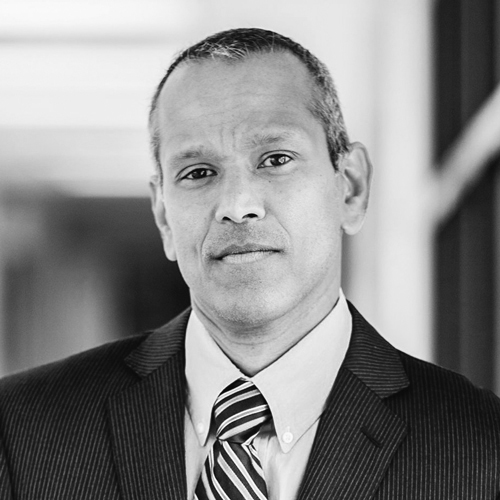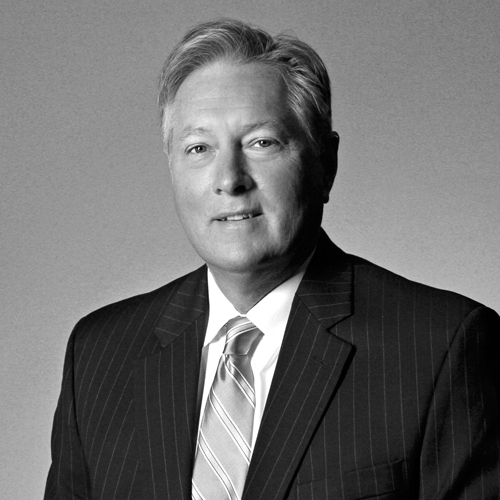Pursuing Healthcare Law
Then: Anne Murphy was weighing her options. It was her senior year of college, and she was considering going on to earn a PhD in clinical psychology. But after some soul-searching and reflection on her interests and passions, she decided to apply to law school. It was there, during her first year at Boston University School of Law, that she was asked to sit on the editorial board for the American Journal of Law and Medicine. It was the mid-1980s, and there were very few law schools that focused on the intersection of law and medicine—a combination in which Murphy would eventually thrive. Ten minutes into an introduction to health-law course, she knew it was exactly what she wanted to be doing with her life.
“I went home after class that day, called my mom, and told her, ‘This is what I want to do with my law degree,’” Murphy recalls. “I was just at the right place at the right time. There were so few programs in health law, but I happened to be at the one school that had an amazing program when almost no one else did.”
Now: Health law has evolved dramatically over the past 30 years, going from advocacy to a highly specialized, wide-ranging legal discipline that requires lawyers to be familiar with legal rules and regulations governing every aspect of healthcare, including regulatory framework. Her alma mater, BU, continues to boast one of the greatest health-law programs in the nation, but unlike when Murphy was in college, universities across the country now offer numerous programs in this particular field—and that’s important. According to the school, health lawyers are navigating both current and traditional legal problems in an economic sector that encompasses a whopping 18 percent of the gross domestic product.
Learning on the Job
Then: Murphy’s career has spanned several healthcare sectors and organizations, but before joining Rush University Medical Center, she was at the private firm Holland & Knight, where she was partner and chair of the firm’s Chicago healthcare and life-sciences team. As a partner at a private firm, Murphy loved having colleagues to bounce ideas off of and, more specifically, enjoyed the “entrepreneurial nature” of the job. “As a partner, you’re not just serving client needs; you’re helping to grow the business,” says Murphy. “There isn’t really a hierarchal structure, so there’s a level of independence that is very satisfying. The law-firm life and Holland & Knight were good to me.”
Now: When Murphy joined Rush University Medical Center in 2012, she stepped into a very different environment. “Working for a nonprofit academic medical center is obviously very different than working in private practice,” she says. “When I think of Rush, I think of clinical and academic excellence, commitment to the community, high ethical standards, and strong management and governance.” According to Murphy, Rush, as an institution, carries itself in a humble way despite its high national rankings, while remaining mission-driven, and one of the things she loves is how much she gets to learn at every level.
“If you’re a partner at a private practice, you’re brought in to work on a case or a series of projects by very different clients; it’s not your job to understand every single facet of each client,” she explains. “That’s not the case in this position. Here I have one client: the Rush enterprise. I have to have a broader, deeper understanding of our issues at every level, and the advice I provide will have a clear impact on the financial, strategic, and clinical aspects of the organization.”
Daily Duties
Then: At a law firm like Holland & Knight, Murphy says her days were more structured, and there were fewer surprises. “Of course, there were rare occasions when a client would call with a crisis,” Murphy says, “but for the most part, I knew what was going to happen at the office each day.”
Now: When you’re the general counsel at a medical center, your days are decidedly less structured than they are at a private firm. For Murphy and Rush, this is because there are so many variables at play: patients with complex needs, hundreds of medical staff, 9,000 employees, clinical research, and a university with thousands of students. “When I come in each day, I know what I think I have to get done,” Murphy says with a laugh. “But every day, at least one thing happens that I never could have anticipated; whatever it is, it wasn’t on my radar when I walked in the door. You have to be able to react to the unexpected. If you can’t get comfortable with that, this isn’t the job for you.”
Making a Difference
Then: Making an impact through your work is something that many people strive for. Depending on where you work, that takes shape differently. At a private practice, Murphy says, the work you do primarily impacts the clients. “It’s harder to see the link between your work and the public good,” she says. “Law firms do pro bono work, but it’s not their primary focus. It was always fulfilling when you could find extracurricular activities that advanced the understanding of health policy, but that was rare.”
Now: The thing that really attracted Murphy to health law was that it was at the intersection of so many different areas: policy issues, clinical issues, science, medical advancements, access, and equity. “When you’re a healthcare lawyer, you have an impact on healthcare entities; when you’re general counsel of an institution like Rush, you can have an impact on the healthcare delivery system,” Murphy says. “At Rush, we’re making medicine and care more accessible to those in need. The work we do here has led to medical breakthroughs. I can’t help but be really proud of that. I feel so privileged to be a part of this team. I truly believe I’m on the side of the good guys.”


